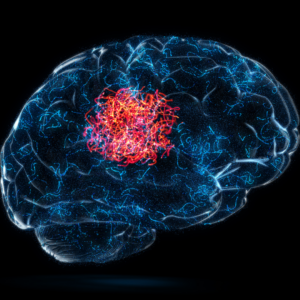Mild Cognitive Impairment, or MCI, is steadfastly becoming one of the major problems of the modern world. It is a condition where cognitive and memory functions of the brain perform worse over time, and not at a rate that would be justified by age. As the world’s population grows older, MCI becomes more and more important to study, understand, and tackle.
In this blog post, we will explore what MCI is, what causes Mild Cognitive Impairment, what factors contribute to its growth, both on the biological level and the social, and what treatments can affect it. Understanding this worldwide phenomenon is key if we are to make sure a big part of our lives isn’t potentially lost in oblivion.
Understanding What Causes Mild Cognitive Impairment (MCI)
MCI describes the condition in which people present problems with their memory and their thinking at a higher level than people of their age. Their symptoms are stronger than those of normal aging and are not caused by it. At the same time, these symptoms are not as severe as those of Alzheimer’s disease or another form of dementia.
However, MCI should not be dismissed lightly: individuals with MCI have an elevated risk of progressing to Alzheimer’s disease or another form of dementia. Early detection and recognition of what causes Mild Cognitive Impairment are crucial because dementia involves irreversible neurodegeneration, where brain regions deteriorate progressively over time. Detecting MCI early can potentially slow down or even halt further irreversible damage.
It is advisable for everyone, especially those above a certain age, to proactively screen for MCI. This is particularly relevant given the high prevalence among older adults; according to the Alzheimer’s Association, 12% to 18% of individuals aged 60 or older are affected by MCI. Taking proactive steps to monitor cognitive health can lead to early intervention and better management of potential cognitive decline.
Biological Factors in Mild Cognitive Impairment
There is a genetic predisposition to MCI linked to a variant of the APOE gene known as APOE e4, which is also associated with Alzheimer’s disease. However, having this gene variant does not guarantee developing MCI or Alzheimer’s. Aging can exacerbate the expression of this gene, but it is not deterministic.
Certain brain changes, such as plaque accumulation throughout the brain, hippocampal shrinkage, and enlargement of brain ventricles, have been correlated with MCI. While these changes are not reversible, modern medications can slow down or even halt their progression.
Additionally, several body-related risk factors can increase the likelihood of MCI symptoms, including high cholesterol, high blood pressure, and diabetes. Managing these conditions effectively can potentially reduce the risk or delay the onset of MCI symptoms.
Lifestyle and Environmental Factors in What Causes Mild Cognitive Impairment:
Genetics and comorbidities are not the only factors leading to MCI. The way we live, what we eat, and how we exercise, all contribute to a better condition of the brain, and thus to a smaller chance of getting MCI symptoms. First and foremost of these factors is the state of our mental health: As we analyze in our article about depression and its connection to cognitive decline, depression can both fast-forward the symptoms of MCI and be caused by it.
Diets rich in antioxidants, such as the Mediterranean or DASH diets, offer substantial brain benefits. Likewise, aerobic exercises like running, swimming, or cycling improve cardiovascular health, enhancing blood flow to the brain. Engaging in mentally and socially stimulating activities also supports brain function.
Conversely, the absence of these supportive factors can be detrimental and accelerate symptoms. Emotional issues, excessive alcohol consumption, and other lifestyle factors can contribute to significant memory problems. It’s clear that our daily choices profoundly impact brain health and the risk of cognitive decline.
Medications and Treatment for Mild Cognitive Impairment
Finally, medication can play a major role when it comes to MCI, both negative and positive. Several types of medication have been shown to worsen MCI symptoms. These can be calcium channel blockers, anticholinergic drugs, benzodiazepines, and others. Benzodiazepines, for example, are medications that make your nervous system less active and are found in Xanax, Librium, Onfi, and others. On the other hand, new drugs for the treatment of MCI show a lot of promise. As of 2023, the FDA approved the use of Lecanemab (Leqembi®) for the treatment of MCI. Lecanemab (Leqembi®) is an antibody intravenous (IV) infusion therapy that targets and removes beta-amyloid from the brain.
Proper medication management is crucial for maintaining cognitive health; improper management can lead to detrimental side effects. Early detection plays a critical role here as well. It not only helps in avoiding potential side effects of medications but also enhances the effectiveness of treatment in its early stages.
MCI can be detected through various methods. Structural imaging, such as MRI and CT scans, provides detailed information about brain tissue shape, position, and volume. Functional imaging, including PET scans, evaluates the functionality of different brain regions. Molecular imaging, using PET and fMRI, identifies specific cellular or chemical changes. Primary care physicians often use cognitive assessment questionnaires like MoCA, MMSE, and Mini-Cog for initial evaluations. For a quick and accurate preliminary assessment without specialist involvement, LANGaware offers an online cognitive test.
Final Thoughts on What Causes Mild Cognitive Impairment
We observed several factors influencing Mild Cognitive Impairment, either positively or negatively. Avoiding certain medications, regular exercise, healthy eating, engaging in cognitive activities, and socializing can significantly reduce the risk of developing this serious condition later in life. Early detection is crucial, as identifying MCI as early as possible can greatly influence its progression over time.
However, the most pivotal factor for both patients and researchers is awareness. It is vital to recognize what causes Mild Cognitive Impairment and that it is highly prevalent among older adults, significantly impacting their lives. Research has already identified important treatments like Lecanemab, yet more efforts are needed to develop targeted prevention strategies, interventions, and support measures for millions affected. Research has achieved remarkable outcomes in the past, and we anticipate similar progress moving forward.







